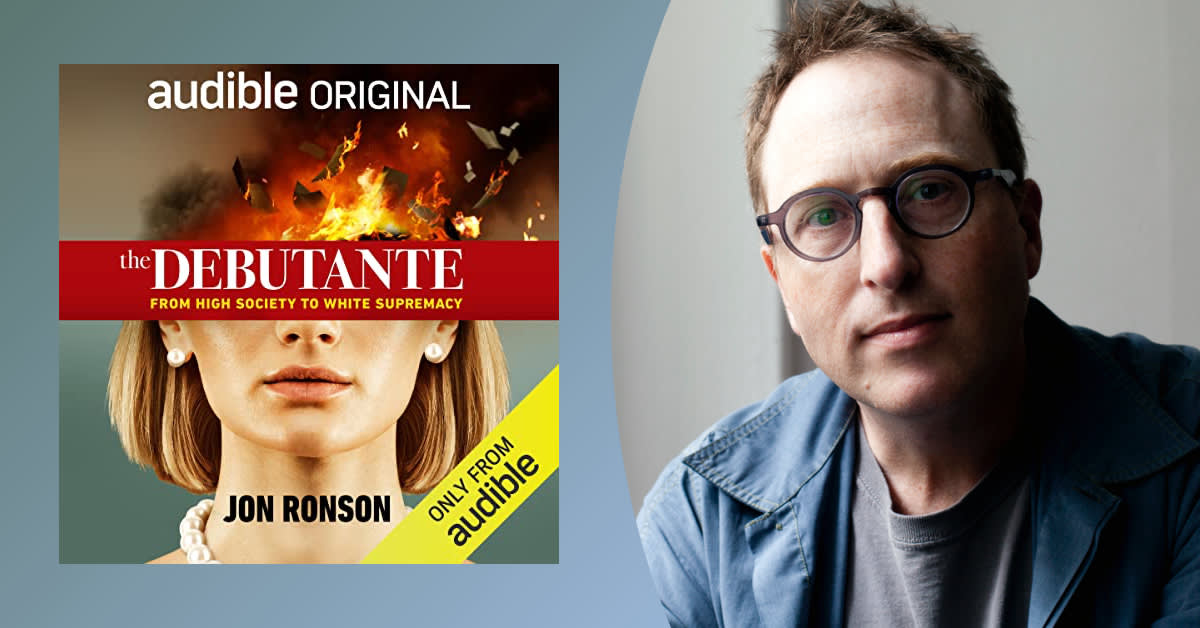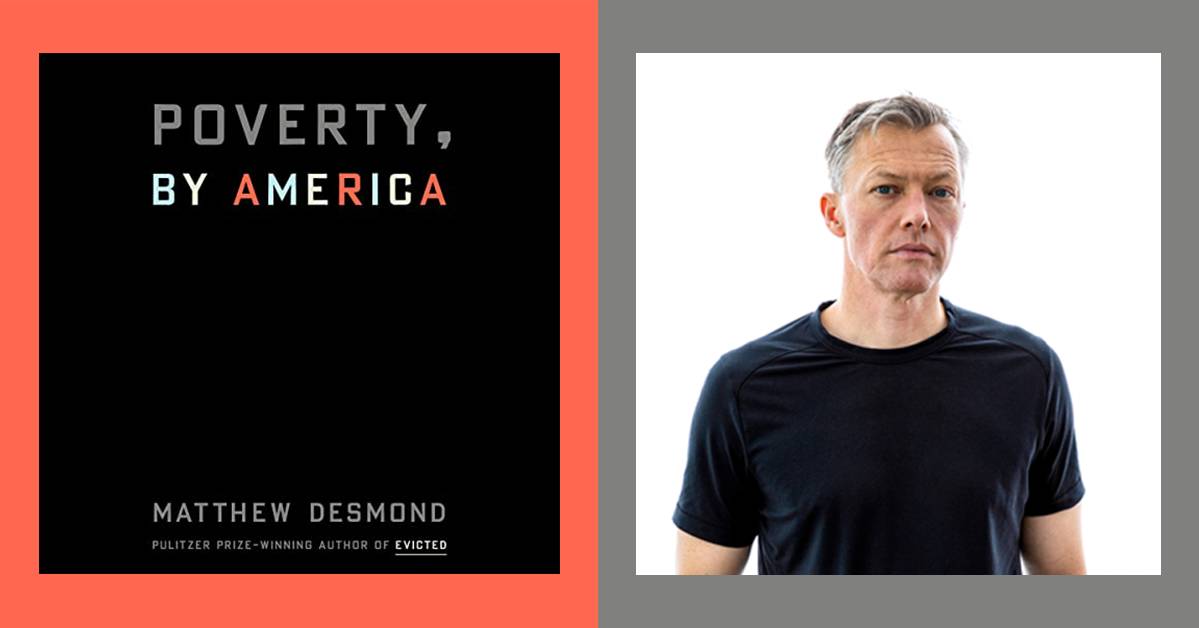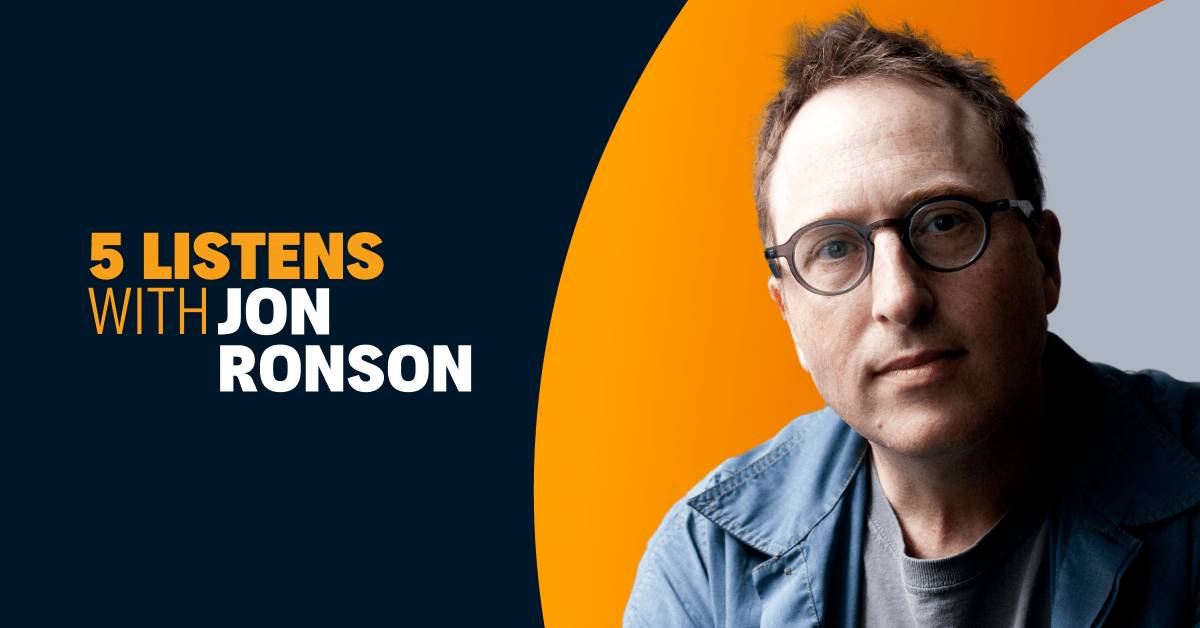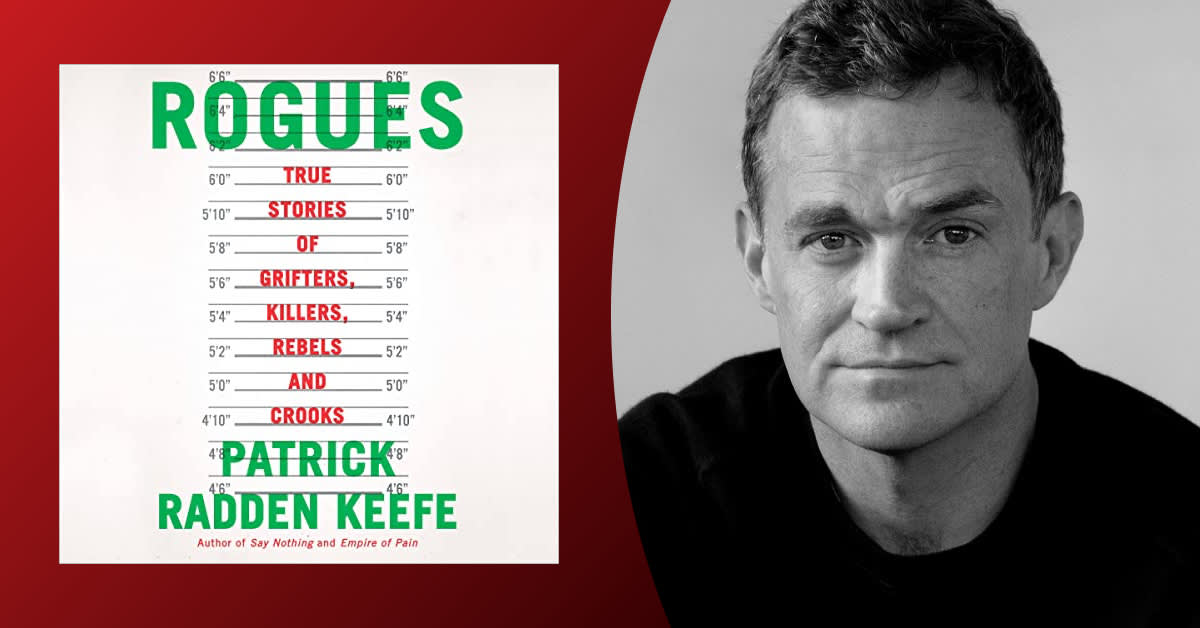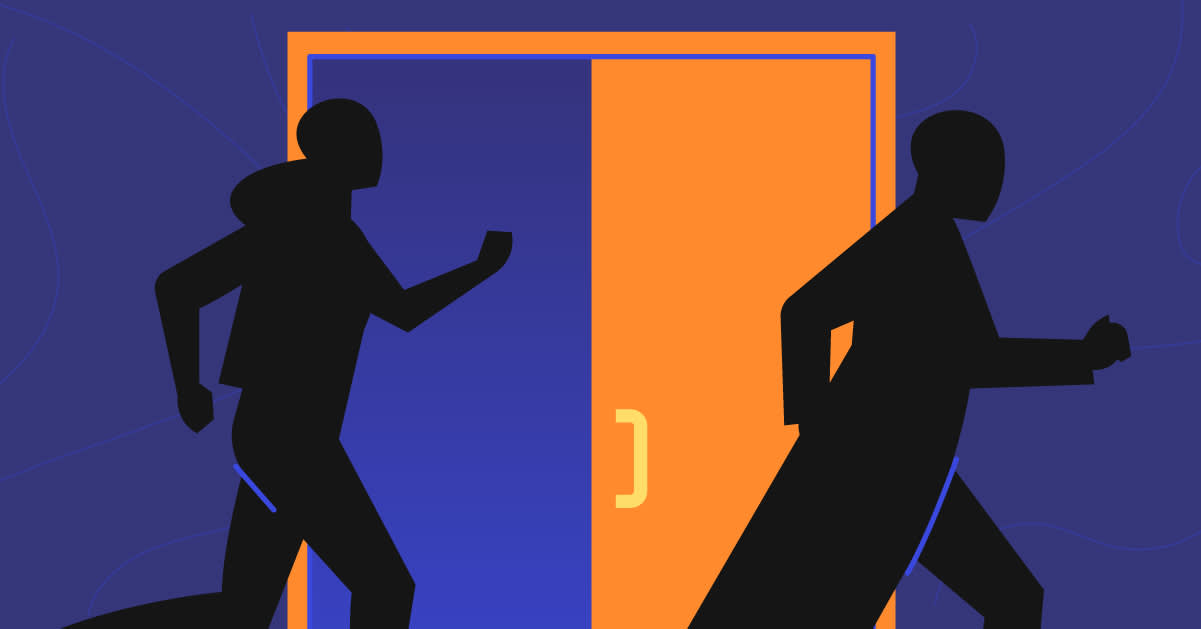As we approach the 28th anniversary of the 1995 Oklahoma City bombing, journalist and bestselling author Jon Ronson releases The Debutante, an Audible Original podcast that disrupts what we think we know about America’s worst act of domestic terrorism. It’s also, as Ronson fans will expect, an obsessively probing and endlessly enigmatic listen.
At the center is Carol Howe, a pretty former debutante who fell in with a group of violent white nationalists (her ex-boyfriend was the convicted terrorist Dennis Mahon) before switching sides and becoming a federal informant embedded in the racist enclave of Elohim City, Oklahoma. It was a dangerous mission that led to a bombshell discovery: information about an upcoming attack on Oklahoma City, motivated by hate-fueled extremism and a critique of federal raids in Waco and Ruby Ridge.
But who was Howe, how much contact did convicted bomber Timothy McVeigh have with Elohim City and key figures like Andreas Strassmeir, and why didn’t the government act on Howe’s information? With his signature curiosity and anxious allegiance to facts, Ronson asks question upon question, turning The Debutante into an engaging puzzle of mysteries nested within mysteries, with Carol as its innermost enigma. For this interview, I turned the tables back on him, and his answers help to illuminate not just the evolution of far-right ideologies, but the rigorous process of a storyteller whose work is purpose-built to stand the test of time.
Kat Johnson: I'm so excited to talk to you about this project, I almost don't know where to begin. Your storytelling is always very nuanced, very probing, and you never quite know where it's going to go.
Jon Ronson: And I haven't really talked about this story before, so it'll be interesting to hear how I verbalize it. You always have to talk about it for the first time sometime. So this is the first time.
How would you describe The Debutante, in your own words?
Well, I've known about Carol Howe for 30 years. In the '90s when I was reporting on white supremacists and conspiracy theorists, there was this woman who was right in the middle of it who was so unexpected; there was this mysterious dissonance. She was a Tulsa debutante, a very glamorous person, and you don't find many glamorous people like that in the kind of backwards white supremacist training camps. So she was mysterious. Like, who was she? What was she doing there?
But what was just as mysterious was this story she was telling the world. And the story was that contrary to what everybody believed, Timothy McVeigh didn't act essentially alone in blowing up the Alfred P. Murrah Federal Building in Oklahoma City, but he was part of a much wider conspiracy of these very odd, also mysterious men.
So there were two mysteries in the story of Carol Howe. One, who was she, what was her story, how did she end up in this bizarre place? And two, the story that she had to tell, was it true? Was she telling a conspiracy theory that might actually be true? Most conspiracy theories I think aren't true. But this one seemed like it might be true.
Back in the '90s, I tried to do the story, and I completely failed and gave it up. And just before the pandemic, about three or four years ago, I tried again, and the result is The Debutante.
I feel like the dots you're connecting between Waco and the Oklahoma City bombing, we're seeing a lot more of that as we look at the alt-right and white nationalism in general. And it seems like the idea of this being a conspiracy is credible, if not solved.
Well, I kind of feel like I solved it, to be honest. I know I choose my words carefully in the show, but I think I got to the bottom of it. I think if people use their critical thinking brains when they listen to the show, they will reach a conclusion, I would say.
But what you say about the alt-right today is a really interesting component of this. Because basically, there's a point of view propagated by very renowned and respected modern-day historians and academics and investigators, that if Carol’s information had only been listened to, the Oklahoma City bombing would never have happened. And they go further. They say that if the government had acted on her information and raided camps, it would've stopped this bombing from happening.
Today there's all of this talk of, "Civil war is coming, and we have to be really proactive. We have to raid them." So that's high stakes.
“Was she telling a conspiracy theory that might actually be true? Most conspiracy theories I think aren't true. But this one seemed like it might be true.”
It's kind of like if the Ruby Ridge and Waco raids led to Oklahoma City, then if there had been a raid on Elohim City, would we have had an even bigger retaliation?
Yes. And also, how good does the evidence have to be for the government to launch an armed raid on a place? I would argue that the evidence has to be pretty impeccable. And so then you need to look into Carol's character to try and figure out how plausible her evidence is. And that's one of the more contentious parts, I would say, of The Debutante.
Ultimately, in digging into Carol and her story and her character, and also digging into the information that she gave, what this show becomes is a kind of tribute to the importance of evidence-gathering and critical thinking.
These days in journalism, ideology is quite often considered to be more important than the old-fashioned values of journalism, which is evidence-gathering. These days, people really value activism and ideology in journalism. And I think The Debutante is a show that says, "Actually, some of the old values, like evidence-gathering and being very, very careful, are values that we can't throw away."
The nature of Carol's character is interesting because she was an extremist, and she became an extremist for reasons that feel invented; this story of her having been thrown off a roof by Black men is pretty conclusively untrue. And then her reason for flipping also felt a little bit "flip," if I can say that word again. It felt surprising how easily she took on this very dangerous assignment. Dennis Mahon, in fact, was quite suspicious of her. The voicemail you have from him is chilling, because I could imagine getting that voicemail and how terrifying that is.
Exactly. Carol was surrounding herself with some of the most dangerous, frightening people you could imagine. I mean, even in white supremacist sort of circles, Dennis Mahon was out there, nuts.
But you're right. I think Carol was desperately searching for an identity, and she was trying on new identities very easily, like she was slipping on the clothes of white supremacy. It's like in this desperate search for identity, she started behaving in startlingly, and sometimes I think funnily, reckless ways. There's a lot of humor in her story too.
I loved that the reason she even got interested in the alt-right was that she was into the band Throbbing Gristle, which, I remember that band. I thought that was really funny.
Yeah, how interesting that she was a fan of a band that was doing parody of fascism, and then she just became a fascist.
You've been looking at this story, and reporting on extremist groups in general, for a long time. You're also Jewish. I'm curious how you deal with speaking to these people who you know hate you and how that affects your storytelling. It sounds like you're able to put it aside, but I'm curious how that works for you.
Yeah, I can put it aside. When I was writing The Psychopath Test, at one point I was inside the Broadmoor Hospital, which used to be known as the Broadmoor Asylum for the Criminally Insane. I was sitting there and I turned to a nurse and said, "God, I just feel so lucky to be here. I just feel so lucky." And he looked at me really oddly and said, "Well, we've got a spare bed if you like! If you want to move in, we've got some spare beds."
And I suppose that's my answer. Oddly, when I'm at a Ku Klux Klan compound or inside Broadmoor or all the many other very dangerous things I've done in my career, there's a big part of me that just feels so lucky. Journalists are desperate to do things that other people don't do. We're desperate to get into secret places and see things that we're not supposed to see. And so usually I just sort of blunder, even though I have terrible anxiety disorders and social anxiety and an array of anxieties, I blunder into these situations so excited to be somewhere where I'm not supposed to be.
It's just like I forget that I'm with people who hate me. And when it happens, when they reveal their hatred to me, it always comes as a big surprise. I remember saying to a neighbor one time, "God, this cult leader is a nightmare, he's acting like a nightmare towards me. This cult leader is a nightmare." He was like, "Why does this always surprise you?" So I think that's the answer.
“Journalists are desperate to do things that other people don't do. We're desperate to get into secret places and see things that we're not supposed to see.”
That's funny! In the show, you have this fabulous “get” where you're able to talk to Andy Strassmeir, and then you figure out a way of being able to tell if he's telling the truth. And that leads to a really interesting exchange.
This is such an interesting story. So, 30 years ago, we tried to get hold of Andy Strassmeir for the first time. For the purposes of your story, I should say he's the man who Carol basically fingered as being heavily involved in the Oklahoma City bombing.
So we tried to find him. We knew he'd escaped to Germany. We wrote to every address we could find. And then suddenly, I remember this so well, I was coming out of the gym in London and my phone rang, and it was this woman called Margo from the north of England. And she was a mother of four, just a regular person, and she lived in this little village in the north of England in the countryside. And she was bored and, just like me, desperate to have adventures. She started writing to Andy Strassmeir, and Andy Strassmeir made her the emissary between him and me. So Margo and I flew together to Frankfurt to meet Andy Strassmeir. And on the way I said to her, "How do I know that you aren't an undercover agent?" And she said, "How do I know that you aren't?"
So she introduced me to Andy Strassmeir at some hotel in Frankfurt. And then later on, I think on the way back to Britain, she said to me that when I left the room, Andy Strassmeir said, "I can't believe you brought along a Jew to interview me." Yeah, so I brought that up again with him 30 years later to see how he'd respond. And he responded in kind of an interesting way, I thought.
I thought so too. Even as an avowed white supremacist, he tried to smooth it over. He passed the buck a little bit.
Yeah. He was a bit embarrassed. But why would a white supremacist be embarrassed about being caught saying something anti-Semitic? Just own it. Own it, Andy!
Is it that our one-on-one social niceties trump everything?
Yeah, I guess. But if he cared so much about social niceties, he shouldn't have been a white supremacist to begin with, if you ask me.
That's a great point [laughs]. I love the story about Margo. As a mom who's into true crime myself, bless her for having that adventure.
And this was years before Serial! This was way before regular people started to get interested in true crime.
This reminds me that some of my favorite true-crime stories are written by people who are outsiders in the communities they're reporting on: Say Nothing by Patrick Radden Keefe, Truman Capote’s In Cold Blood, the documentary The Staircase. I think The Staircase would not be what it is if it weren't for these French filmmakers who were like, "What the hell's going on over there?" So I'm so interested in you as someone who's Welsh and nothing like these gun-toting white nationalists in the slightest. How did that play into your reporting and the storytelling?
I do like being an outsider. For The Psychopath Test too. I think there's a real value in a complete outsider going into a world. Because that's how you start to see things with fresh eyes. I mean, I love all the things that you just mentioned. In fact, I met Patrick Radden Keefe last year and thought he was really lovely. And Truman Capote's In Cold Blood and Norman Mailer's The Executioner's Song were huge influences to me.
But I would say, I think actually The Debutante and my previous show for Audible, The Last Days of August, in a way they've got the veneer of true crime. But they're almost more like comments on the true crime genre as opposed to being part of the true crime genre. The Last Days of August, I think, was pretty critical of true crime podcasting, despite the fact that, like you, I love it.
And The Debutante too, I'd say. Because the whole thing about true crime podcasting is to set up cliffhangers and to get excited and to point the finger at culprits and to make big grand statements. And The Debutante is really a show that says, "What we really should be doing is the opposite of that. What we should be doing is patiently and carefully..." And if we find out that the crime didn't happen, if we find out that the story isn't true, there's really a dignity and the satisfaction in that. There's a dignity and a satisfaction in the story being less exciting than it might seem. The Last Days of August and The Debutante are both about, I think, the importance of taking a breath and looking at a story calmly and not ideologically.
But when you mentioned In Cold Blood, I don’t think this was in the book, but there was a story Truman Capote told that has always stayed with me. Which is that when he turned up in the town, all these journalists were there and he went up to the police chief and said, "You need to give me access that you don't give anyone else. You need to give me all the access, and not those people." And I think the police chief said, "What's so special about you? There's all these journalists doing big stories that are going to come out tomorrow. We've got journalists with deadlines."
And Truman Capote said, "Yeah, but my story is the one that everyone will remember."
And of course, it was. I love that because I always spend years on my stories, like years. And I do think my stories very often are the ones that people remember. And it's very much because I was inspired by Truman Capote to forget about writing a story really quickly and it's going in the paper the next day and it's a scoop. Forget about that. What's great is to do something that's going to live for decades. To tell a story that people will be reading decades later. And I'm proud of the fact that a lot of my stories are read decades later. And it's to do with, again, it's to do with patience. Take your time, get it right, do it properly. Because your stories will be monuments in a way that a scoop in a newspaper isn't a monument.
Oh, that's such a great insight. And that takes guts to be like, "My story's the one."
Yeah. But if you take years over something, it quite often could be the one that's the one. You just need to be patient and curious and take as much time as you need, and your stories might end up being the ones.
“I was inspired by Truman Capote to forget about writing a story really quickly and it's going in the paper the next day and it's a scoop. Forget about that. What's great is to do something that's going to live for decades.”
I hope I don't sound egotistical, because it’s not about ego; it's just about process, I suppose. I wrote a story when me and Alex Jones snuck into Bohemian Grove, the secret summer camp, in I think 1999, maybe 2000. People still talk about that story all the time, 23 years later. And again, it's because I want to say to young, up-and-coming journalists: Be patient, be curious. Take as long as you need.
But also in nonfiction, we should have the ambition to tell our stories as well as great novelists do. Again, this is something I learned from Truman Capote and Norman Mailer and people like that. But a lot of nonfiction authors don't have that ambition. If you do have that ambition to tell a story as well as a novelist, like a life-changing story as well as a novelist, then people will be talking about your story a quarter of a century later.
And this story was a big story at the time. After the bombing, there were reports that this informant had given information to the ATF, and so there is some information to be found about Carol, but not much, because things weren't very online back then. Were you nervous about like, "Oh God, someone else is going to break this story" while you were working on it?
Well, as it happens, shortly after The Debutante comes out, Paramount TV are bringing out a sequel to their Waco drama, and I think a minor character in this sequel is Carol. For all I know their Carol, their fictional Carol in this show, she may only be in the show for 10 minutes. I have no idea what they're doing with her. So I'm not too worried about that. And anyway, there's nothing I can do. What could I do?
No, but it's serendipitous because your story is such a deep dive into Carol. For people who want to find more, this is where they'll find it.
Yeah, absolutely. If people watch the Paramount show and are intrigued by Carol, then now they can go to The Debutante and hear the full story. There's no way that the Paramount show will go into as much depth, and also, it's stuff that people don't know. I'm the first person, I'm the only person other than the FBI ever to interview her first husband. And the story that Greg tells about their marriage, it's a movie. It's hilarious. It's like a white supremacy Pretty Woman in reverse, where Greg is the Julia Roberts and Carol's the Richard Gere.
She's just out of his league...
He was so lucky, and she broke his heart. I know, she was so out of his league. But he was very charming. And I can see why she fell for him. He was very charming. The poor guy, she made him get matching swastika tattoos.
Oh my gosh. And then when she went to Elohim City, and there was the woman you spoke with whose son fell in love with Carol, and then she dumped him.
She was definitely a white supremacy femme fatale. But then, as I say in the show, the question is, is she a femme fatale for conspiracy investigators as well? This is another amazing thing about Carol, is that everybody she came in contact with was just beguiled... It's like she utterly transformed the lives of people. She broke so many hearts and she massively intrigued so many people with her story about the Oklahoma City bombing. She really left a big footprint in a lot of people's lives. And for me, as a storyteller, that's really interesting too.
And then, what is she doing now? How has she reinvented herself?
I mean, I'd love to know.
I hope she will reach out.
I hope so too. It nearly happened before the pandemic. I don't know why she changed her mind, but she did. And I really hope she reaches out. Because if we got stuff wrong, I feel like—well, I certainly feel like we got everything as right as possible, but maybe she'll listen to it and think, "Okay, they got that wrong, they got that wrong," and that will compel her to reach out and do an interview and correct the record.
Right. Or she'll hear your recording and say, "Wow, this guy really did his research, and so I can trust him."
All I want to do is portray people in the most curious and nuanced light. That's all I ever want to do. Whoever they are and whatever they did, all I want to do is try and understand them and portray them in as nuanced and curious of a way as possible. And that's certainly how I feel about Carol.
We're all humans. We're all humans, and humans are a mess. We're flawed, we're clever, we're stupid. We do good things. We do bad things. And that's Carol in a nutshell.
The Debutante is available on Audible now.
